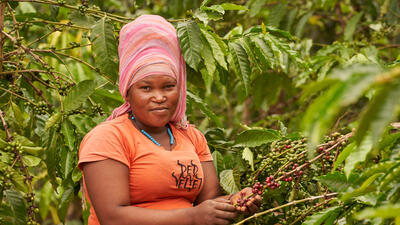News from the Carbon and Water Management workshop taking place today and tomorrow in Kenya
Climate change is driving changes to both production and market access for the Kenyan Horticultural industry. ITC, PIP together with the Kenya Fresh Produce Exporters Association (FPEAK) are organizing a workshop to providean overview of the sustainability agenda in the agrifood sector with a special emphasis on carbon and water management. This article is an update from the workshop held at the centre of the Kenya flower and vegetable industry.
Climate change is driving changes to both production and market access for the Kenyan Horticultural and flower industry. ITC and COLEACP/ PIP together with the Kenya Fresh Produce Exporters Association (FPEAK) are organizing a workshop to provide an overview of the sustainability agenda in the sector with a special emphasis on carbon and water management.
Opening the workshop, Stephen Mbithi from FPEAK stressed that Kenyan exporters need to engage now and be a part of the development of carbon and water standards.
Several experts gave the international perspective on retailer and standard setter demands.
Steve Homer of Biospartners reported on the findings of a survey carried out by PIP in which UK retailers ranked water use as the most pressing concern for them in the agri-food supply chain. Alex Kasterine of ITC presented ITC’s new Carbon Product Footprint Guide for exporters on meeting market requirements on carbon
Juliah Mkanyika from Sunripe, one of Kenya’s leading vegetable exporters spoke of the opportunities the new carbon footprinting standards presented. In her company’s carbon footprint assessment, she identified 10-50% cost and carbon emissions savings in airfreight, packaging and water use.
However, there were substantial costs in purchased software and data to carry out the assessment.
Mwinzi Musunza, a producer from Benvar Country Fresh says that carbon footprinting is one of the things they would really like to understand for their business.
In the session devoted to water management, Nick Hepworth from the Alliance for Water Stewardship, highlighted “Water issues have become a priority for consumers” and that a water stewardship standard can help producers mitigate risks in times of stress, increasing due to climate change. He also noted that water use is a priority for supermarkets who do not want to be exposed to reputational risk.
Friday, the second day of the workshop will see presentations from several standard setters including Rainforest Alliance and Fairtrade who are integrating climate change issues into their standards. The afternoon session will look at how ITC and its partner COLEACP/PIP can target support to the sector effectively in 2012.
You can find out more about the workshop by reading this other news item.















